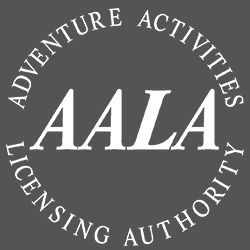We use the natural situations faced during the weeks to develop the competencies in the young people as the learning opportunities arise.
“Research undertaken using two large scale surveys indicated that in just over a decade personal and social skills became 33 times more important in determining relative life chances. At the same time young people from less affluent backgrounds became less likely than their more fortunate peers to develop these skills”. (Margo and Dixon 2006)
The first phase will be 7 to 10 days with the young person having to complete a short expedition, following several training days, being two nights in the mountains, which they will plan and execute.
In Week One we look at self assessment and self management, where they are with their lives and where they would like to go. Staff ratios here are 1:1. We look at their:
- Confidence
- Motivation
- Communication skills
- Self discipline and self control
This phase must be completed in order to gain entry to the second phase which will be accommodated in bunkhouse style accommodation. This is the reason we say 7 – 10 days as different students will take different lengths of time The second phase would ideally be based around a working sheep farm, if not we look to arrange simple conservation work. We work alongside the young people, carrying out all the tasks necessary as well as undertaking outdoor activities. This will form the learning medium. During the subsequent weeks:
- The learning during Week One will carry through and be consolidated and developed here.
- Prior to joining the course a young person would enter into a simple contract with Eagle House as part of this they hand in their mobiles and personal music etc. Mobiles are “earned back” in week two for two evenings a week.
- All Young people will experience achievement in some form, they will learn new skills, develop a work ethic, and feel an increase in their self esteem and confidence.
- The structured learning offers an opportunity for achievement and reward during the early stages. They must achieve in order to move on, so developing motivation and the work ethic as well as moving forward towards the programme goals through incentives. We are investigating an OCN qualification here.
- The working week will be Monday to Friday with Monday, Wednesday and Friday being work based and Tuesday and Thursday activity based.
- The evenings and weekends will be as structured as the working week. Our staff will work day and evening rotas to fully occupy the young people while they are with us, giving a taste of many different experiences to stimulate their interest in activities or hobbies they could maintain when they return to their own communities. This again is an important method of continuing their development post course. The evenings are also the time when independent living skills can be developed, such as cooking, healthy diet, hygiene and life skills.
During these structured phases the young people work together and live together, an ideal environment to develop their social skills, self discipline, problem solving skills, communication skills, and independent living skills. The environment that the young people will stay in will at one time provide a myriad of opportunities for staff to use in order to support training as well as creating reward and motivation to succeed.




